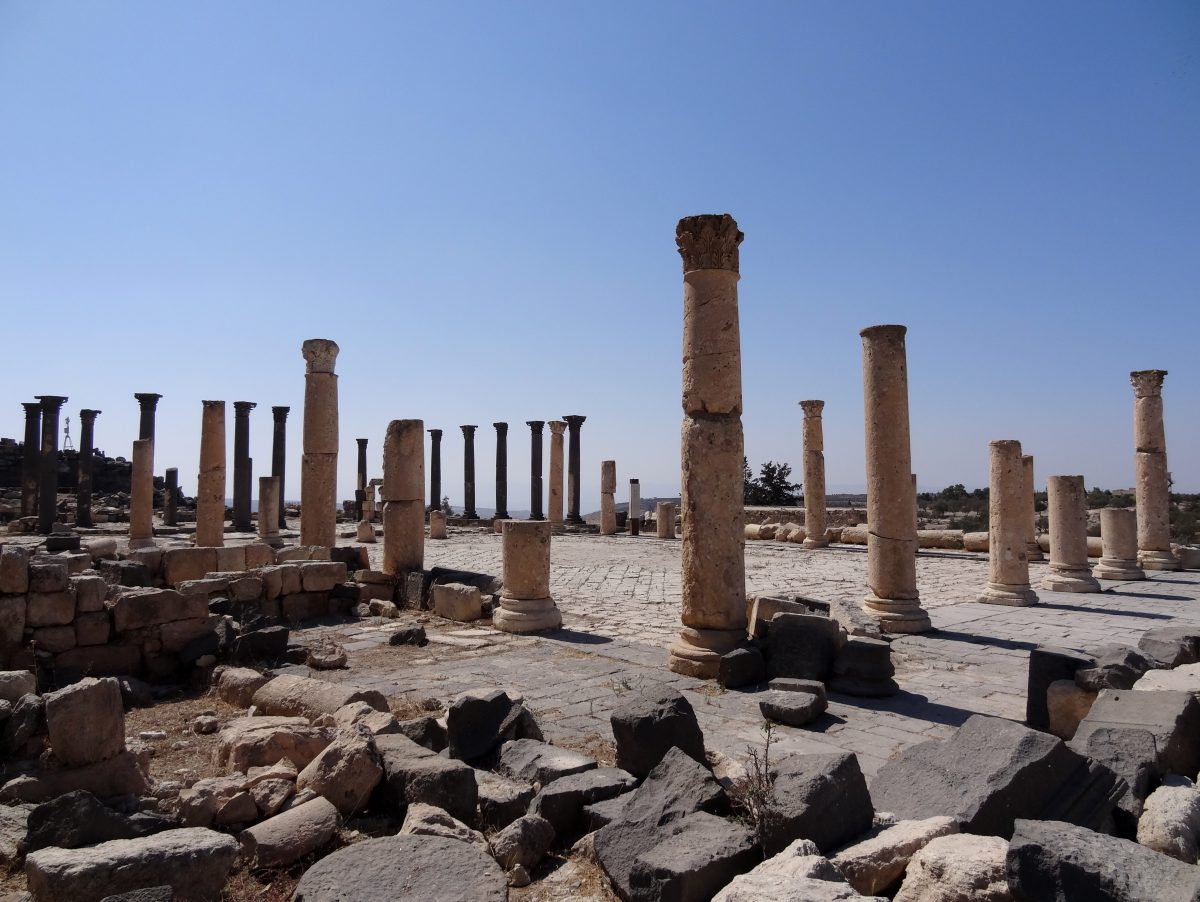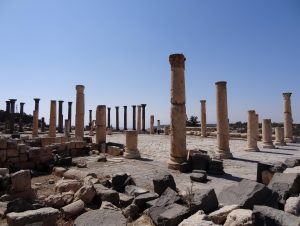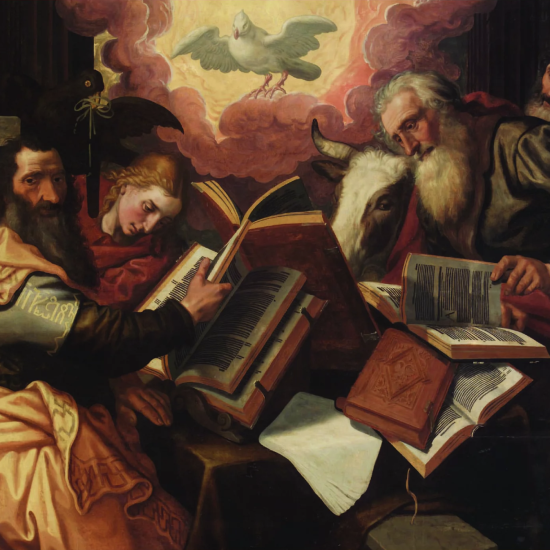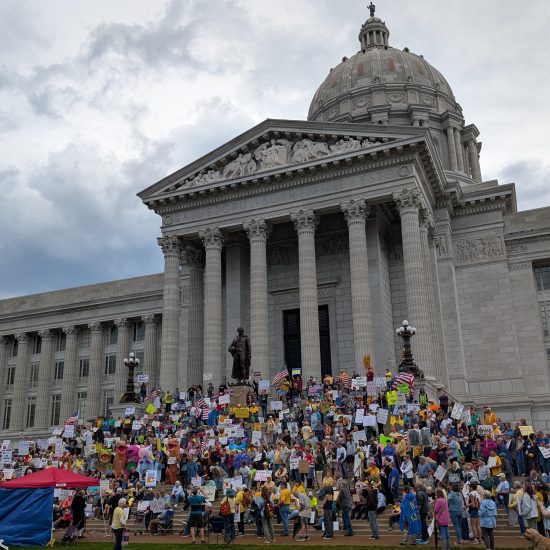
Luke 8.26-39 tells the encounter between Jesus and a Garasene community. Among their citizenry was a man overwhelmed by the constant presence of a Legion of demons. For as long as he had been under demonic control, his community stood in solidarity beside him long enough to chain him up outside of town so he would not harm others. He would sometimes break free of his chains and roam the wilds and cemeteries along the steep hills rising out of the east side of the Sea of Galilee.
This Garasene served as a one-man greeting party to Jesus, ranting and raving in the nude just as Jesus and his followers docked the boat. Jesus calmly asks the man his name and learns how his is possessed by a legion of demons, for they are many. Jesus commands them to come out of the man the demon army rush toward a nearby herd of pigs that immediately drown themselves in the lake.

Greg Mamula
It really is a ghastly scene. A naked, emancipated man sits alone, a group of stunned herdsman look on in horror as their semi-domesticated swine are now floating in the lake bumping against the rocks and the boats from the sway of the waves. And Jesus just walks up the freed man and probably throws his own cloak around him and comforts him. When the Garasenes kinsman arrive and see him clothed and the swine in the water, they are afraid. They are so afraid they eventually ask Jesus to leave.
They were afraid of the man’s sanity. This strikes me as apropos of our times. Like the Garasene villagers we are often more comfortable chaining up our demons than living in a world where they have been vanquished. It sometimes feels wiser to keep an eye on a monster from a distance, believing we have it under control, than it is to vanquish one altogether.
I wonder why we are so much more comfortable knowing evil exist, knowledgeable that some of us to suffer disproportionately the effects of these powers more than others, and so often our solution is to manage it with manacles and isolation. And when a moment of real freedom comes, we are so afraid of it we would rather excise the exerciser than live one moment in its presence.
I think it is very telling that the community around this man were more afraid of his healing than of his demons. They were his kinfolk, friends, and fellow citizens. They were supposed to love, care, and support him. Yet they chose the path of wilderness, chains, and graveyards. Both options required them to be in his presence. Somebody had to run him down in the wilds and chain him back up when he broke loose. They could have just as easily soothed his wounds and fed him, but they chose hostility instead of hospitality.
As Jesus attempts to move on from this very physical demonstration of how the kingdom breaks into our everyday, the man wishes to go with Jesus. Who could blame him? He has spent who knows how long under the power of demons. His own people banished him and chained him up. Who would want to go back to that? Based on their fear, they might treat him worse than before.

Ruins in Umm Qais, Jordan, one of the communities in the region where the story in Luke 8 occurred. (Brian Kaylor/Word&Way)
But Jesus refuses to remove the one sign of redemption available to this community. Everywhere this man goes for the rest of his life he will be known as the formerly possessed. As he walks, works, and lives among his own people, he will serve as a living embodiment of the power of healing love. Perhaps over time they too will come to know how much God had done for this man and that it is readily available to them as well.
As we move through the several weeks wrestling with our own personal and national demons I pray we would look for Jesus coming ashore and beg to be healed of our Legions of racism, greed, selfishness, pride, lies, nationalism, economic castes, gender barriers, and all the rest. That we would not be afraid, angry, or biter at those who have also begun to be set free of this legion of oppressive demons and now have a new lease on life and more loving outlook on the world. But instead I hope we might join them in celebrating their newfound freedom as they live among us as living embodiments of the power of the healing love of Christ.
Rev. Dr. Greg Mamula is the Associate Executive Minister for the American Baptist Churches of Nebraska. He is author of Table Life: An Invitation to Everyday Discipleship, to be published by Judson Press. Visit table-life.org to learn more about his ministry and writing projects.






